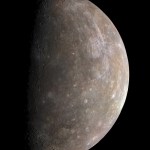comets
Humankind has touched the surface of the solar system's most alien of objects.
Image taken from NAVCAM top 10 at 10 km – 10.
There are no words...
No.
First, let me tell you that the Journal of Cosmology has a very checkered history and anything published in it can not be trusted in the same way one might trust counter-intuitive results, provisionally at least, in a legit journal.
An article in the journal indicates that British scientists found stuff way high up at the edge of the out space-atmosphere boundary that must be from comets.
They give the argument that it must be from a comet because they did their sampling of it during a time when comet dust would be likely found in the region (because a comet's remains,a meteor swarm,…
"Night, when words fade and things come alive. When the destructive analysis of day is done, and all that is truly important becomes whole and sound again." -Antoine de Saint-Exupery
When you look out into the Universe, what is it that you typically think of? Do you think of reliable, fixed stars and constellations? The vast expanse of the Milky Way, with its memorable dust lanes and amorphous shapes?
Image credit: Wally Pacholka of http://www.astropics.com/.
The unchanging nature of the points of light in the sky?
Image credit: Roth Ritter (Dark Atmospheres), of the double cluster in…
"You don't drown by falling in the water; you drown by staying there." -Edwin Louis Cole
Our Solar System is -- at least from our perspective -- the most well-studied system of planets, moons, asteroids and comets in the entire Universe.
Image credit: Olaf Frohn, from earlier in 2012.
And in this system, the closest planet to our Sun, Mercury, was also one of the most poorly understood planets until very recently. Because Mercury is so close to the Sun, it's very difficult to view it under good conditions with a telescope; the risk of ruining your optics by exposing them to direct…
Just who does this comet think it is? The comet Lulin, discovered last year by a Chinese teenage amateur astronomer, has never been here before. This is its first pass around the sun. It will, owing to a number of different poorly explained by science journalists effects, fly at the sun backwards, spewing green gasses. Only first time comets spew the green gas. Then it will fly around the sun and back out into the far reaches of the solar system. The comet will actually capture enough energy from this one single trip around the sun to escape the gravitational space time warp of our…



